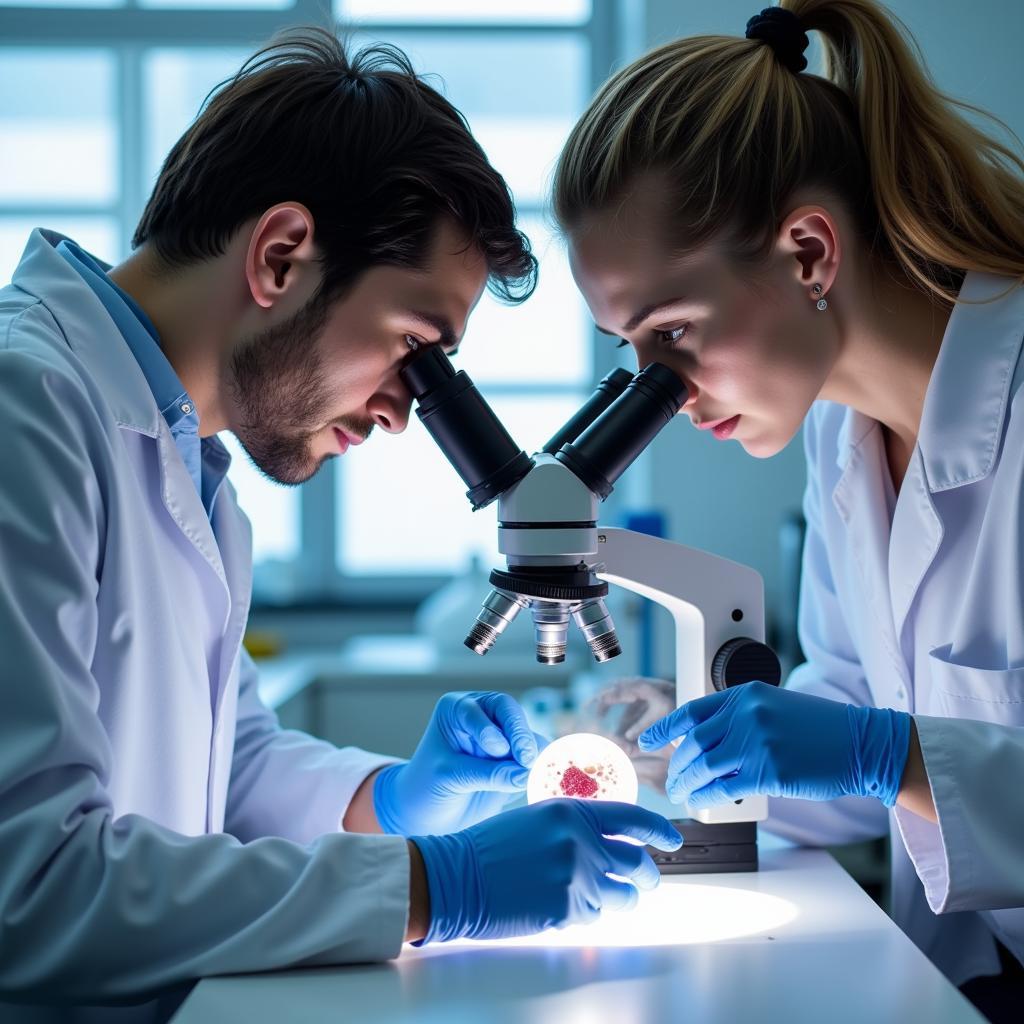The Society For Theriogenology (SFT) plays a critical role in advancing animal health and welfare, focusing specifically on the science and practice of veterinary reproduction. But what exactly does that mean, and why should we care? This article delves into the importance of the Society for Theriogenology, exploring its impact on animal well-being, food security, and conservation efforts.
What is Theriogenology?
Theriogenology, a term derived from Greek words meaning “animal reproduction,” encompasses the study of male and female reproductive systems in animals, including physiology, pathology, and clinical management. This specialized field within veterinary medicine addresses a wide range of issues, from pregnancy and childbirth to infertility and reproductive diseases.
The Role of the Society for Theriogenology
The Society for Theriogenology serves as a leading professional organization for veterinarians and scientists dedicated to animal reproduction. Founded in 1949, the SFT has played a pivotal role in advancing the field through research, education, and advocacy.
Here are some key functions of the SFT:
- Promoting Research: The SFT actively encourages and supports research in theriogenology, fostering advancements in reproductive technologies and treatments.
- Providing Education: The society offers a range of educational resources, including conferences, workshops, and publications, to enhance the knowledge and skills of veterinary professionals worldwide.
- Setting Standards: The SFT establishes guidelines and best practices for reproductive health management in various animal species, ensuring high-quality care.
- Advocating for Animal Welfare: The society advocates for policies and practices that promote responsible animal breeding and the well-being of animals used in research and production.
The Impact of Theriogenology on Our Lives
While theriogenology might seem like a niche field, its impact extends far beyond the veterinary clinic. Here’s how:
Food Security
Theriogenology plays a crucial role in ensuring a safe and sustainable food supply. By improving reproductive efficiency in livestock and poultry, theriogenologists contribute to increased food production, helping to feed a growing global population.
Animal Health and Welfare
Through early disease detection, effective treatments, and responsible breeding practices, theriogenology directly contributes to improved animal health and well-being.
Conservation Efforts
Theriogenologists play a vital role in conservation by assisting with captive breeding programs for endangered species. Their expertise helps to maintain genetic diversity and increase population numbers, giving hope for the survival of threatened animals.
"Theriogenology is not just about treating animals; it's about safeguarding the future of our planet," says Dr. Emily Carter, a leading researcher in reproductive physiology and a member of the SFT. "By ensuring healthy reproduction in animals, we contribute to biodiversity, food security, and the overall well-being of both animals and humans."The Future of Theriogenology
As technology advances and our understanding of animal reproduction deepens, the field of theriogenology continues to evolve. Emerging technologies, such as genetic testing, artificial insemination, and embryo transfer, are becoming increasingly sophisticated, offering new possibilities for improving animal health, enhancing breeding programs, and aiding in conservation efforts.
 Veterinarians Examining an Embryo
Veterinarians Examining an Embryo
The Society for Theriogenology remains at the forefront of these advancements, driving innovation and promoting excellence in the field. As we face global challenges such as climate change and growing food demands, the work of the SFT and the dedication of theriogenologists around the world will be more critical than ever in ensuring a healthier and more sustainable future for all.
Conclusion
The Society for Theriogenology plays a vital and often underappreciated role in our world. Through their dedication to animal reproduction, these professionals contribute to animal well-being, food security, and the preservation of endangered species. Understanding the work of the SFT allows us to appreciate the interconnectedness of animal health and human well-being and highlights the importance of supporting their efforts in safeguarding our planet’s future.
FAQs
-
What animals do theriogenologists work with? Theriogenologists work with a wide range of animals, including companion animals (dogs, cats, horses), livestock (cattle, pigs, sheep), and exotic animals (zoo animals, wildlife).
-
What kind of training do you need to become a theriogenologist? Becoming a theriogenologist requires a Doctor of Veterinary Medicine (DVM) degree followed by specialized training in animal reproduction, typically through a residency program.
-
How can I support the Society for Theriogenology? You can support the SFT by becoming a member, donating to their research and educational programs, or spreading awareness about the importance of theriogenology.
Do you have other questions about animal health, reproduction, or the Society for Theriogenology?
Explore more articles on our website or contact us directly.
Hotline: 02043854663
Email: [email protected]
Address: Khu 34, Bắc Giang, 260000, Việt Nam.
Our dedicated team is available 24/7 to assist you.